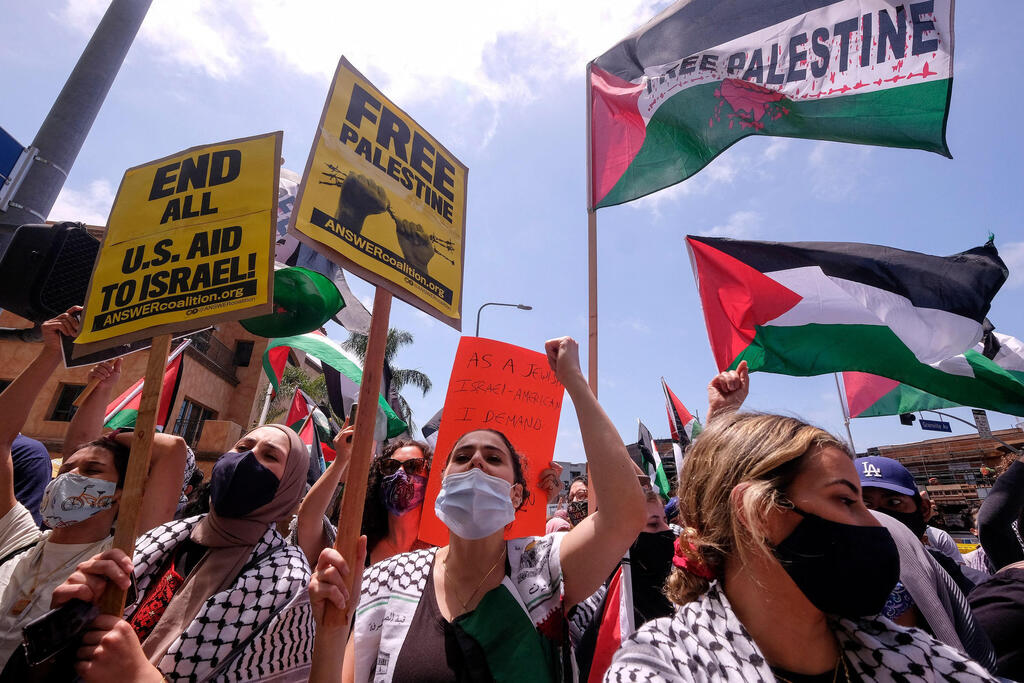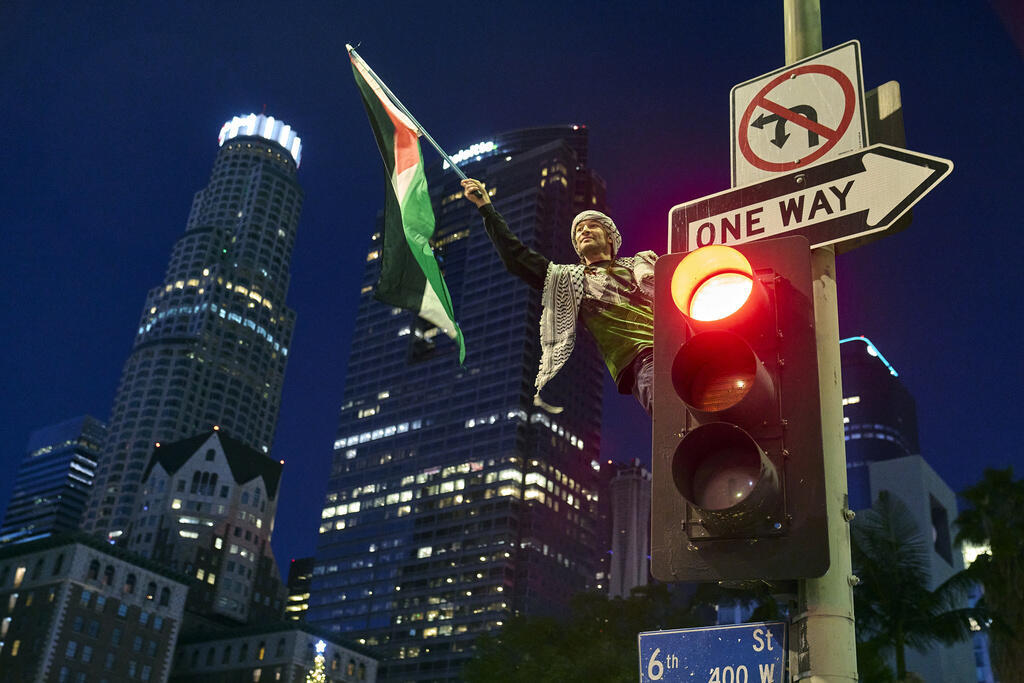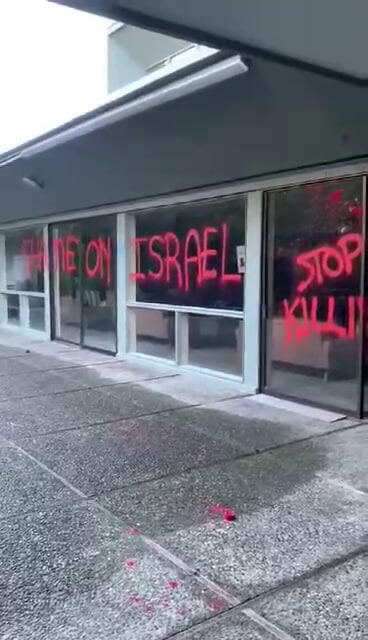On an ordinary Shabbat, a few weeks ago, something happened at the Temple Beth Am in Los Angeles. An email sent to the congregation on Shabbat evening indicated that the minchah afternoon prayer would be held at an alternative location to be revealed later, and not held in the synagogue as it is every Shabbat.
Read more:
The reason being the fear in the community of a pro-Palestinian demonstration that was planned to be held near the synagogue, during mincha hours. To prevent a possible confrontation, and out of fear for the safety of the worshippers, it was decided to keep them away from the place. This email, sent on Shabbat evening, caused quite a stir in the Jewish community. The community was split between those who thought it was a wise move that would prevent risk to the worshipers, while others claimed that it was surrendering to the protesters.
Finally, since Shabbat had already begun and it was impossible to inform all the members of the community of yet another change, it was decided to stick to the original decision, and the prayer at noon moved to the rabbi's house. The synagogue remained closed for the first time in many years.
This affair, which seems like a small incident, left a bad taste among some members of the community. One of them, Michael Berenbaum, even wrote a poignant column on the Jewish news site The Forward in which he claimed that "The worst thing American Jews can do right now is hide." According to him, moving the place for a prayer service because of fear of the protesters is exactly the opposite of what should be done. "This is a difficult time to be a Jew in Israel, in the U.S., in Europe and in the world. But if Jews cower we will only make it more difficult," he writes.
Berenbaum said that he received mixed reactions to the column, and that some agreed with him that it was not the time to hide, but others claimed that security is above all else.
"The demonstrators deliberately determined the location and time of the demonstration, in the heart of a Jewish neighborhood on Shabbat around prayer times. They had a goal not only to demonstrate for the Palestinians, but to do it in a place where it would create an impact in front of the Jewish community," he said.
"The reaction of the community's executive committee was, in my opinion, excessive caution. We have guards regularly in front of the synagogue and the Jewish institutions, and if there is further concern or an escalation of threats and violence, there is a police force that is supposed to uphold the law and we should demand that they do their job. Running away to this other place was not the solution. We are a Zionist synagogue, we hang the Israeli flag, and we pray for Israel's peace and sing Hatikva (Israel's national anthem) at the end of every prayer service. We should not allow ourselves to be kicked out of our home," he said.
Berenbaum, a Holocaust scholar and one of the founders of the United States Holocaust Memorial Museum, added: "We learned in history that there are times when Jews need to flee, but now is absolutely not the time. We must not retreat in days like these."
What actually happened that Saturday?
"In the end, several hundred protesters arrived at the scene, and there were no special incidents. They knew of course that it was a Jewish area, but either by mistake or not, they faced the shopping center and not the synagogue. In any case, there were no physical confrontations or anything of the sort. Our prayer took place without interruption in the alternative location, the rabbi's house."
The "retreat," as Berenbaum describes it, caused an uproar within the community. "It's a great community, and I'm proud of it and love it. It has good friends and the next generation also comes to pray and participate in the events," he notes. "It was a one-time incident over which there was controversy and I continue to argue that it was the wrong decision. Such a retreat implies that there is no religious freedom in the U.S. and that we should hide, which is something I cannot accept. If this is how people feel, then decisive action is needed from the government to protect us," he said.
3 View gallery


Was pro-Palestinian protest held in front of synagogue in Los Angeles coincidental?
(Photo: AFP)
"Jews should be brave and not afraid. In the last 50 years, it has been easy to be a Jew in the U.S., even in public, and I don't feel that it has fundamentally changed, but we must be vigilant so that it remains so. I am against Jews taking down mezuzahs from the doors of their houses or that they are afraid to go out with a kippah on the street. It is forbidden for us to normalize a situation where being Jewish is a problem or dangerous. If we allow fear to control us, it's a victory for antisemitism," he added.





